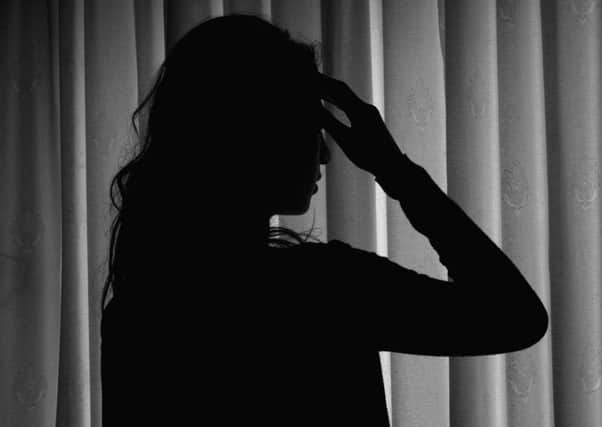Social media makes one in four young women depressed, says NHS


A new report from NHS Digital found a jump in the number of women aged 16 to 24 experiencing mental health problems and a growing gap between female and male sufferers.
More than a quarter (26%) of young women aged 16 to 24 are suffering worrying symptoms - more than three times the rate for men the same age (9%).
Advertisement
Hide AdAdvertisement
Hide AdAround a quarter of young women have also self-harmed - most commonly cutting themselves - compared to just 10% of men the same age.
In 1993, young women were twice as likely as young men to exhibit common mental health disorder symptoms (CMD) symptoms, but they are now three times more likely to experience them.
CMD symptoms include irritability, worrying, depression, anxiety, feelings of panic, compulsion and trouble sleeping.
While rates of severe CMD symptoms are falling among young men, they are rising among young women (from almost 10% in 1993 - to 15% in 2014).
Advertisement
Hide AdAdvertisement
Hide AdWomen aged 16 to 24 are also the most likely to drink at hazardous levels compared to women in other age groups, and have high rates of post-traumatic stress disorder.
Sally McManus, lead author of the study, from the National Centre for Social Research (NatCen), said women aged 16 to 24 had “very high rates” of anxiety and depression.
She said it was known that women suffer due to violence and abuse, but added that young women in the study are the “first cohort to come of age in social media ubiquity”.
She added: “This is the context they are coming into and it warrants further investigation.”
Advertisement
Hide AdAdvertisement
Hide AdDr Hayley van Zwanenberg, clinical director of the Priory’s well-being centres, said: “Younger people of today - the ‘touch screen’ generation - see the internet as their friend but for many it is actually a huge distorting mirror, presenting a world of ‘perfect’ people with perfect lives against whom they judge themselves very harshly.
“This is particularly true for women, who worry much more about their weight and their appearance as a result of being deluged with social media. This worry fuels eating disorders, stress, and self-harming.”
The National Study of Health and Wellbeing for 2014 was based on responses from 7,500 people.
The data showed that, in 1993, 19% of women aged 16 to 24 had symptoms of CMD, but this rose to 26% in 2014.
Advertisement
Hide AdAdvertisement
Hide AdOverall, across all age groups in England, one adult in six has a CMD - about one woman in five and one man in eight.
One person in three with CMD is currently receiving treatment for their problem, up from one in four in 2007.
A fifth of adults (20.6%) reported that they had thought of taking their own life at some point, and this was more common in women (22.4%) than men (18.7%).
Stephen Buckley, head of information at mental health charity Mind, said a combination of factors is likely to be behind the rise in depression, anxiety and self-harm in young people.
Advertisement
Hide AdAdvertisement
Hide AdHe said: “Young people are coming of working age in times of economic uncertainty, they’re more likely to experience issues associated with debt, unemployment and poverty, and they are up against increasing social and environmental pressures, all of which affect well-being.
“Since the last data was released in 2009, we’ve seen a surge in the use of social media. Social media can promote good mental health; for example, online peer support networks like Elefriends.
“It can help people feel less isolated, particularly those who struggle to make and maintain relationships or who find it difficult to leave their homes. But it also comes with some risks.
“Its instantaneous and anonymous nature means it’s easy for people to make hasty and sometimes ill-advised comments that can negatively affect other people’s mental health.
Advertisement
Hide AdAdvertisement
Hide Ad“It’s important to avoid sites that are likely to trigger negative feelings and/or behaviour and to take a break from social media if you’re feeling vulnerable.”
Health Secretary Jeremy Hunt said: “We want to make sure that everyone, regardless of gender, age or background, gets the mental health treatment they need.
“We have introduced the first-ever mental health waiting times and are backing the NHS’s plan to revolutionise mental health care which will see an additional £1 billion invested every year by 2020.
“We’re also investing £1.4 billion over the next five years to help every area in the country transform services for young people with all conditions, including self-harm.”